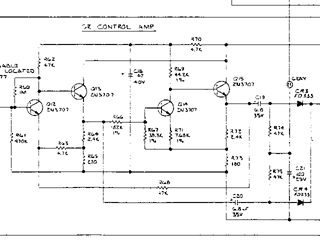matta
Well-known member
Hey Guys,
I'm steadily making my way through my Mnats 1176 and have come to a few obstacles and need some advise.
1.For the 2K trimpots can I get away with a 2K2 one as this is what the local store has in stock?
2.For the 38.3K resistor can I substitute a 39K?
3.For 44K2 can I use 44K or 45K?
4.For the 4R3 resistors can I use metal film over carbon, though the BOM calls for Carbon?
5.Any common value substitute for 7K68
Thanks in advance, I'm quite excited about this one :thumb:
Cheers
Matt
I'm steadily making my way through my Mnats 1176 and have come to a few obstacles and need some advise.
1.For the 2K trimpots can I get away with a 2K2 one as this is what the local store has in stock?
2.For the 38.3K resistor can I substitute a 39K?
3.For 44K2 can I use 44K or 45K?
4.For the 4R3 resistors can I use metal film over carbon, though the BOM calls for Carbon?
5.Any common value substitute for 7K68
Thanks in advance, I'm quite excited about this one :thumb:
Cheers
Matt



